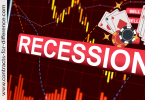As you probably know, even if you have only read an Investing for Dummies -type blog or ebook, there are certain pieces of news that have the potential to influence the stocks of certain companies or the markets as a whole. These are often published at certain times of the year – think news like interest rate decisions, national trade balance news, financial reports, and such. Sometimes, in turn, these pieces of news come at random – like a new policy decision by a government with the potential to influence some major players in a market. This happened late last year in Romania when a new tax announced by the government pushed Bucharest exchange’s BET Index into a bearish territory with a decrease of almost 12%.
But not all news is created equal. Today, we live in an incredibly connected environment when a piece of news can go viral long before its authenticity can be verified. Fake news has the same potential of influencing markets than real news – except for the fact that fake news is – obviously – fake. But its effect is not.
American economist Robert J Shiller, author of “Irrational Exuberance”, described the news media in a “constant competition to capture the public attention” focusing on news that are “interesting” and “breaking”. Sometimes, in turn, the value of this news is lost among all the attention-seeking. The stock market has a certain “star power” in the media, but some articles are apparently only written with the goal of publishing something – anything – related to price changes. Some of these news articles are not even relevant – they do, in turn, influence the way the movements of the market are perceived.
And the same goes for social media. A study conducted over two years analyzing tens of millions of tweets has found that the sheer volume of tweets sent by Twitter bots did indeed contribute to the short-term growth of decrease of certain shares, even for FTSE100 companies. And, as opposed to tweets sent by humans that usually have a positive impact of share prices, those published by bots have the opposite effect, usually triggering a negative movement of the prices. The effect of these Twitter updates has been shown to be short, lasting for about half an hour, pulling down prices and growing volatility in the process.
Even one high-impact tweet can have a significant influence on the markets. Back in 2013, the AP’s Twitter account was hacked and published an update about then-US President Barack Obama being injured in an explosion. The tweet wiped out around $130 billion in stock value in a matter of minutes. The prices, of course, recovered in a short time.





